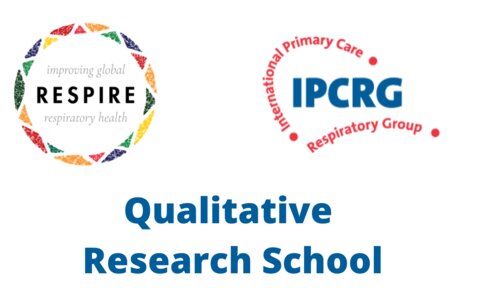IPCRG and RESPIRE – Supporting global researchers

The IPCRG and RESPIRE research awards were awarded to three projects around COVID-19 across 4 sites in 2020, to study COVID-19 related topics and build the capacity of investigators in partner countries. The studies are now underway and are providing exciting progress, despite the additional challenges of the pandemic. The awards were granted during the IPCRG and RESPIRE Research School, which took place in September 2020.
The Research school was focused on qualitative research in primary care and featured modules, such as developing a research question, developing a topic guide, reflective practices, and research governance. It used active learning and incorporated role play, as well as inviting research protocol proposals from which the research award winners were chosen. The funded projects are:
- In Pakistan, the investigators were awarded £10,000 to study the Barriers and Facilitators to self-protective behaviours among community pharmacists and pharmacy staff during COVID 19. Saima Aslam is leading the project, which is taking place across three cities, and is examining behaviours in a range of communities.
- In Bangladesh, the £5,000 award was granted to study the Experiences and perceptions of self-medication post-COVID- 19: A qualitative pilot study with Rohingya refugees. This study is taking place in the Rohingya Refugee camp in Cox’s Bazar, close to the border with Myanmar. Shah Ahasnul Imran is leading this project, which is focused on building investigator capacity.
- In India, the £5,000 award is shared between two sites in Lucknow and Pune and is a Qualitative study of barriers and enablers of providing and receiving health care in specialized Covid-19 hospital wards. Dr. Tuhina Tastogi is leading the project in Lucknow and Dr. Harshpreet Kaur in Pune. This study has received an additional grant from the Elizabeth Blackwell Institute Global Public Health Call (COVID-19) for £19,800, which is allowing a full study to take place.
Each of the projects is supported by an experienced mentor provided by the IPCRG. Amanda Farley from Birmingham University in the UK is supporting the Pakistan team, Alice Malpass from Bristol, UK, is supporting the Bangladesh team and Hans Wouters from the GPRI in the Netherlands is supporting the Indian teams. The mentors are guiding and advising the teams to support them to achieve the best results and maximise the learning from these projects.